
Call for abstracts – Place Leadership in Europe
18/10/2022
EURA 2023 – Call for panel submission
07/11/2022Conversation #47
It’s supposed to be a conversation
by Alistair Jones
De Montfort University, United Kingdom
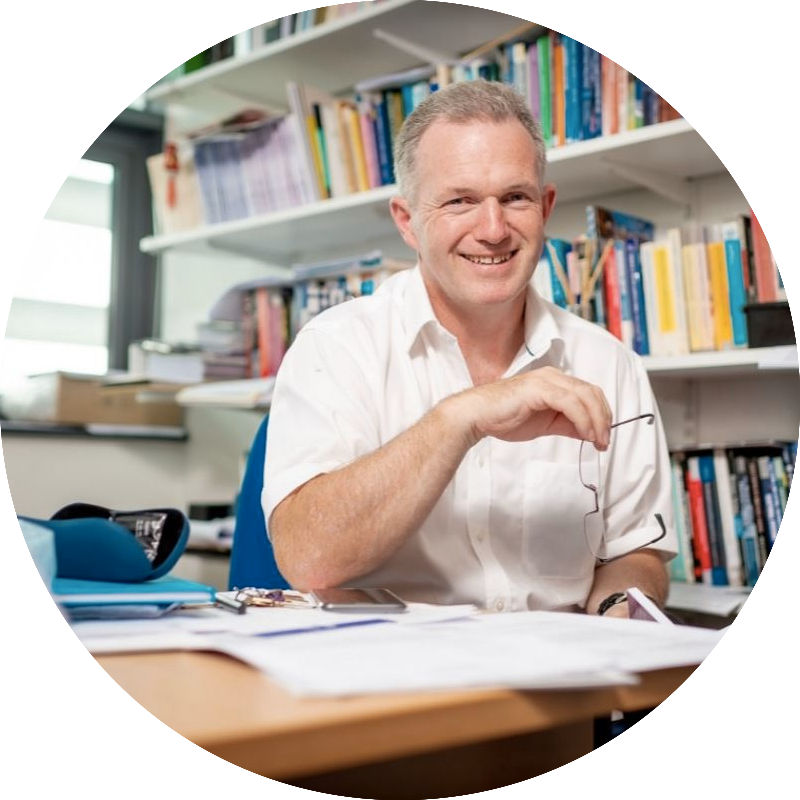 One of the fascinating things about the EURA Conversations series is the wide range of topics about which so many people have written, especially all of the lesson learning from the Covid period (not that Covid is over, by any means). From Robin Hambleton’s opening Conversation on Leadership, through cycling, healthy spaces, to Africa, the Caribbean and Aeotearoa-New Zealand, to mental health, inequalities and public protest, it has been an amazing journey. Yet there was a frustration. As one of the co-editors, I am probably as guilty of this as any other reader. Like others, I ‘liked’ Conversations but I did not interact any further. Yet, it was supposed to be a conversation. Few Conversations, to date, have seen a written response in the Conversation platform. This is not to lay blame anywhere. Rather, it is to ask a question: did we generate a conversation?
One of the fascinating things about the EURA Conversations series is the wide range of topics about which so many people have written, especially all of the lesson learning from the Covid period (not that Covid is over, by any means). From Robin Hambleton’s opening Conversation on Leadership, through cycling, healthy spaces, to Africa, the Caribbean and Aeotearoa-New Zealand, to mental health, inequalities and public protest, it has been an amazing journey. Yet there was a frustration. As one of the co-editors, I am probably as guilty of this as any other reader. Like others, I ‘liked’ Conversations but I did not interact any further. Yet, it was supposed to be a conversation. Few Conversations, to date, have seen a written response in the Conversation platform. This is not to lay blame anywhere. Rather, it is to ask a question: did we generate a conversation?
Conversation: a talk, especially an informal one, between two or more people, in which news and ideas are exchanged (courtesy of the Oxford English Dictionary).
Did any such interaction occur as a result of those printed words in those previous Conversations? Perhaps some people contacted the writers directly and they had a private conversation. If that was the case, then that was brilliant. Or maybe, like me, you sat there and thought. Stimulating thoughts and ideas is an integral part of the EURA Conversations series, but the giveaway in the ultimate objective is in the title: Conversation.
As one of the editors and an author of earlier Conversations, I have had fascinating discussions with other authors and editors. We have discussed broadening or narrowing the terms of reference of the Conversation, or asked and answered questions of clarification about some of the content. It was a brilliant learning experience as an author and an editor. There have been clear conversations in the preparation of each submission. Yet, as I look back, I wonder if those conversations stop at the point of publication.
Was the aspiration of the EURA Conversations series to promote discussion and debate? I believe it was. Have we succeeded in developing such discussion and debate, or conversations? I don’t know.
It may be that people disagreed with what was written, and didn’t want to cause a kerfuffle. Okay, but why not ask questions of clarification? Why not be constructive in any criticism? Why not converse? This series is not about tearing down people’s thoughts and ideas. Rather, it is supposed to be about creating the space to have a conversation; a constructive exchange of ideas; a stimulus to create further interest. Perhaps this was done and the end result was the publication of quality research. We need to celebrate this as part of our conversations.
I think back to discussions when I was early in my career (in pre-internet times). While having coffee with colleagues, ideas were drawn up on the back of an envelope about plans for a book chapter. Such a brilliant thing for me as an early-career researcher; that conversation and exchange of ideas. Today, we have so much more sophisticated technology, and far greater opportunities to interact with people from around the world. Zoom and MS Teams (other platforms are available) have become the new ‘back of an envelope’. But to what extent are we actually having these conversations?
We have these conversations elsewhere. Think of the EURA Conferences (and all of the other organisations who hold similar) and the panels and papers at which you have attended. Be it as a convenor, a presenter, or a member of the audience, conversations have developed, through a simple ‘Question and Answer’ approach. Sometimes there have been disagreements, and even arguments (as I remember back at my first EURA conference), but there was a passion for the subject matter. There has also been a lot of constructive and helpful advice, which, for me at least, has always been appreciated.
EURA Conversations is one such platform for these exchanges. Maybe the layout of the platform was not the best. Who should raise that with the editorial team? Perhaps the topics included in the Conversations did not really appeal. Who should offer alternatives? There might be a fear around the responses to any such comments people present. The editorial team may need to clarify on the guidelines as to how the conversations might develop. It is, after all, about developing a conversation.
The thing with a conversation, as per the definition presented, is the informality and the exchange. All of our work – if not all of our careers, I suspect – have been built around having conversations. It’s informal, so we can’t ‘make’ you join in with the EURA Conversations. Instead, I ask you to consider this: when you have had an idea about a new project or a potential new partner to deliver a course with you, what have you done? I’d hazard a guess that you have had a conversation with someone. It may well have been someone you trust, or whose opinions you value. It is still a conversation. So why not share that here? Help others to develop their ideas in a positive and constructive manner.
Alternatively, offer your own starter for a Conversation to the editorial team. Explore that new idea among colleagues and friends. The EURA Conversations can be a valuable sounding board. As we re-launch the series, why not partake in conversation.

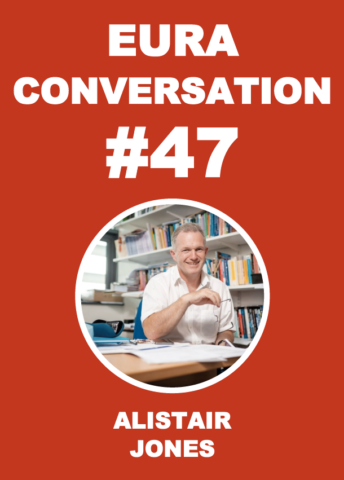

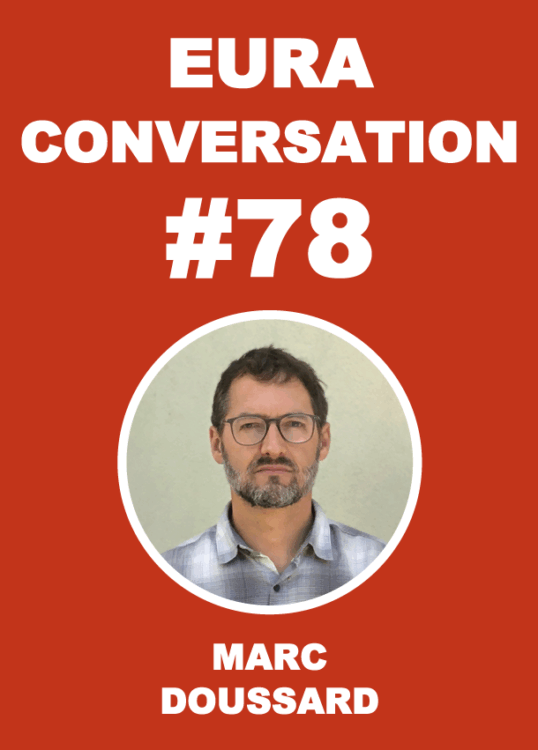
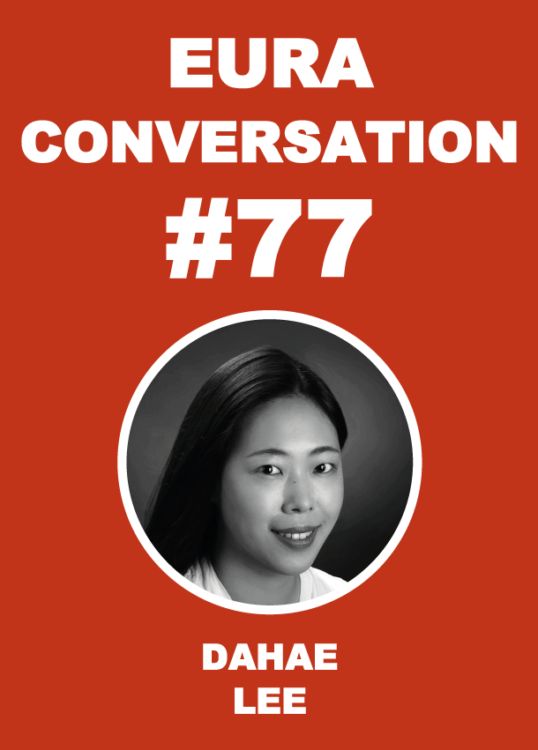
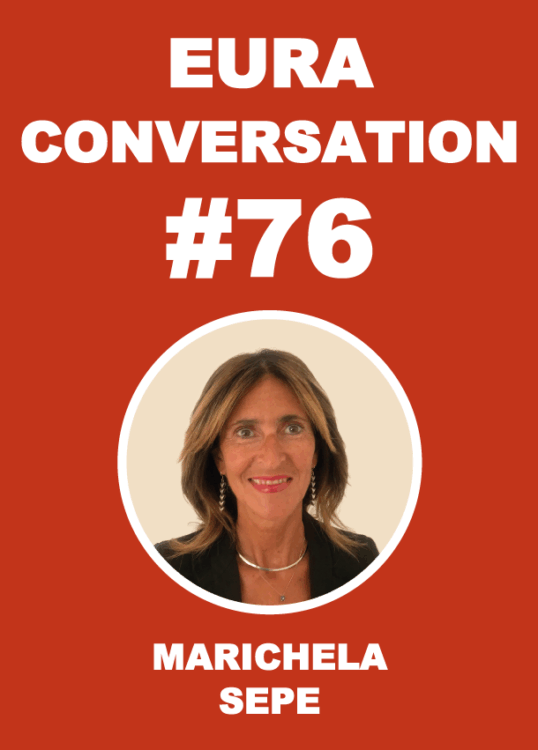

As in marriage, frequent meaningful communication is a sine qua non for success. Therefore it is hard to quarrel with Alistair Jones’ heartfelt cry of a little more conversation. Even though – as always – it might be difficult to disagree on principles, oftentimes plenty of room for debate. This case is not very different. Unsurprisingly I fully agree with Alistair’s call for more conversations in our EURA community. Moreover, I also recognize the merits of the numerous thoughtful contributions made to the EURA Conversations since this blog was launched in May 2020.
At the same time, however, I dare to challenge the assumption that a blog is an appropriate means for “conversations” as defined in Alistair’s blog, as these often well-written, thoughtful academic essays hardly qualify as “informal exchanges.” Perhaps therefore “blog” is a misnomer. But even under another banner I think it is unrealistic to pretend that a blog – however useful – might serve as a virtual substitute for the authenticity of informality personal encounters at the fringe of conferences – preferably over a glass of beer or other (non)alcoholic beverages.
It of course remains worthwhile to consider options to make EURA Conversations more interactive! Personally I assume that this is best done, when we acknowledge we are all very busy; even those who, like me, are now enjoying life in retirement… Perhaps “borrowing” a few elements that made Twitter successful might be used for that purpose. Contributors to the blog-new-style might be asked to summarize their considerations in one or a few provocative statements. Subsequently, the EURA editors might use these statements as the basis for a short quiz with one or more “agree-disagree” questions based on the blog, offering the opportunity to provide arguments for one’s position (within a maximum 280 characters).
To entice many reactions it might also be nice to invite the original author or one of the blog authors (or who ever else) to write a final consideration. Although such exchanges cannot nor should not be considered substitutes for real-time, in person conversations, a EURA-blog new style along these lines, might better serve our community.
Thank you for the comments, Bas. I am in full agreement with you. The idea of having a convivial chat about some research ideas, while attending a conference, and having a glass of beer (or other beverage) at the same time is perfect – and I have done this many a time.
Sometimes, the issue may be about how to start that conversation. I remember as a young researcher being a little over-awed when I met some of the big-hitters in the academic world of politics. Perhaps the EURA Conversations can be one way in which that conversation can be started?